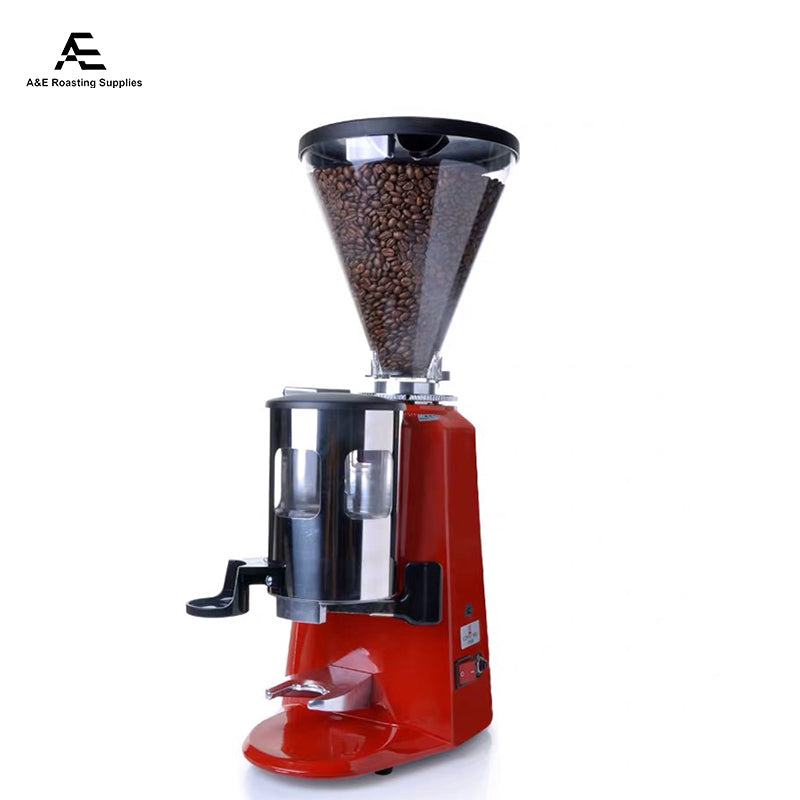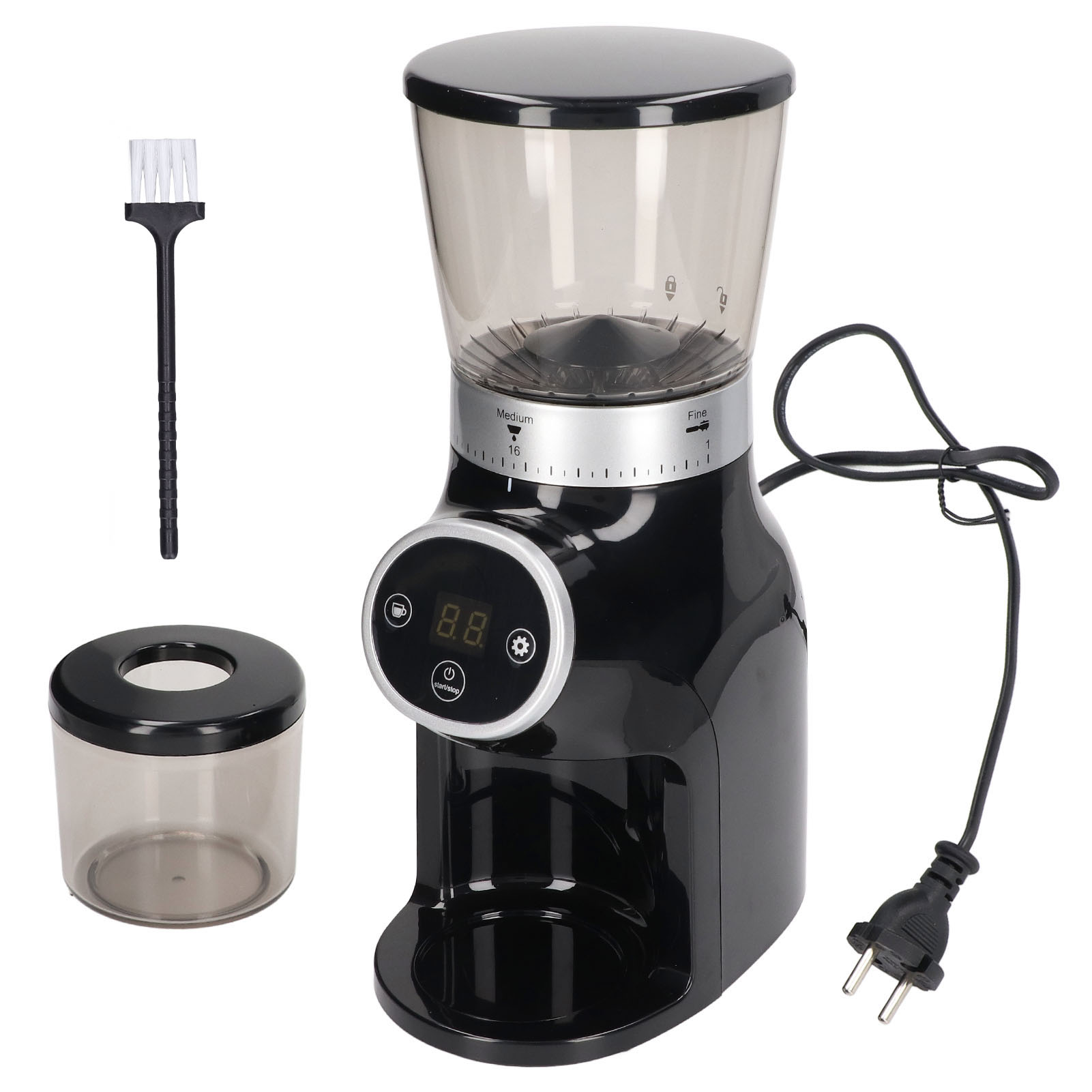Discover the Top Industrial Coffee Grinder for Business Needs
Discover the Top Industrial Coffee Grinder for Business Needs
Blog Article
Industrial Coffee Grinder Overview: Increase Efficiency and High Quality
In the competitive landscape of coffee production, selecting the appropriate commercial coffee mill plays a pivotal duty in improving both efficiency and product quality. Recognizing the nuances of various mill types and key features-- such as customizable grind setups and robust construction-- can considerably influence the last taste profile of the coffee.
Comprehending Grinder Types
When choosing a commercial coffee grinder, recognizing the different types readily available is crucial for maximizing both taste removal and functional performance. Both key kinds of grinders are blade grinders and burr mills. Blade mills use sharp blades that slice coffee beans right into irregular sizes, leading to uneven removal and potentially unwanted tastes. While blade mills are usually a lot more economical and ideal for small-scale procedures, they are normally not advised for commercial use.

Eventually, selecting the ideal sort of grinder is integral to maintaining top quality and efficiency in coffee production, making it crucial for businesses to purchase premium burr mills for optimum results.
Secret Attributes to Think About
Picking an industrial coffee grinder needs cautious consideration of a number of key features that can substantially affect both performance and the overall coffee experience. One of the main facets to evaluate is the grinding system. Burr mills are usually preferred over blade grinders, as they offer a regular work size, which is important for ideal extraction and flavor.
Another vital feature is the mill's capacity. A versatile grinder with multiple settings permits you to customize the work size to various brewing techniques, enhancing the coffee's taste account.
Assess the mill's sound level, specifically in a hectic coffee shop or production setting, where excessive sound can be turbulent. Spending in a mill that stabilizes these functions can substantially enhance both functional effectiveness and the quality of the coffee served.
Optimizing Grinding Refine
To achieve the best results in coffee prep work, optimizing the grinding process is necessary. The grind size considerably influences extraction, flavor, and overall top quality of the brewed coffee. Different developing techniques call for details work dimensions; for circumstances, espresso demands a great work, while French press requires a crude appearance. Comprehending the partnership advice between work dimension and developing approach is the primary step in optimization.


Additionally, keeping an eye on the grinding rate can enhance the procedure. Slower grinding commonly generates less heat, preserving delicate tastes and fragrances. Alternatively, faster index grinding may generate excessive heat, negatively impacting the coffee's high quality.
Upkeep and Care Tips
Proper maintenance and treatment of commercial coffee mills are crucial for ensuring optimum efficiency and durability. Routine cleansing is the foundation of maintenance; deposit accumulation can influence taste and grinding effectiveness. It is a good idea to clean up the grinder after each usage, cleaning down the outside and eliminating any coffee premises from the burrs.
In addition, examine the grinding burrs for damage. Dull burrs can compromise work consistency, so they should be changed as required. Industrial Coffee Grinder. Regularly calibrating the mill is likewise crucial, as this maintains the wanted work size for numerous brewing approaches
Lubrication of relocating parts need to be done according to the manufacturer's requirements, as this decreases rubbing and lengthens the life of the tools. It is vital to utilize food-grade lubes to ensure safety and security and compliance with health and wellness regulations.
Finally, keep Continue the mill in a steady and completely dry environment to stop rust and deterioration. By adhering to these upkeep and care pointers, operators can improve the performance of their commercial coffee grinders while making certain high-grade result and expanded operational life.
Roi Analysis
Reviewing the return on investment (ROI) for commercial coffee grinders is vital for businesses seeking to optimize their coffee production abilities. A thorough ROI analysis assists establish the economic practicality of spending in high-grade mills, allowing businesses to weigh the initial prices versus possible gains.
Evaluate the purchase rate of the grinder, consisting of setup and any type of required alterations to existing facilities. High-performance grinders usually lead to minimized grinding time and raised throughput, which can considerably improve performance.
Additionally, consider the influence on product high quality. Industrial Coffee Grinder. Superior grinders produce a more constant grind dimension, which can improve taste profiles and client satisfaction, eventually driving sales. By increasing the high quality of the last item, companies can justify greater pricing, bring about enhanced profits
Final Thought
In recap, an industrial coffee mill plays a pivotal function in boosting both efficiency and item quality within coffee production. By picking top notch burr mills furnished with important functions such as flexible grind settings and long lasting building, organizations can ensure ideal taste removal. Routine upkeep is critical for sustaining mill performance and optimizing customer fulfillment. Ultimately, the tactical investment in a trustworthy grinder contributes dramatically to boosted revenue and competitiveness in the coffee industry.
In the competitive landscape of coffee manufacturing, choosing the ideal industrial coffee grinder plays a pivotal duty in enhancing both efficiency and product top quality. The 2 main types of grinders are blade grinders and burr mills. Within the burr mill classification, there are flat burr mills and conelike burr mills, each with its advantages. Burr grinders are generally favored over blade mills, as they offer a constant grind dimension, which is critical for ideal extraction and taste.
In recap, a commercial coffee grinder plays a critical duty in improving both efficiency and product quality within coffee manufacturing.
Report this page